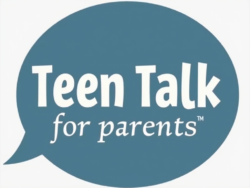
10 Toxic Phrases to Eliminate from Your Household
In the chaos of daily family life, fostering critical thinking in your child may seem like a daunting task, especially when communication becomes fragmented and negative patterns take hold. Sarcastic comments, biting criticisms, and dismissive remarks can often escalate tensions, eroding trust, respect, and emotional safety in the household. However, by intentionally crafting your communication with a mindful approach, you can create an environment that nurtures critical thinking and empowers your teen to process information, make sound judgments, and thrive in an increasingly complex world.
Why Is Critical Thinking Essential for Teens?
Critical thinking is the cornerstone of problem-solving and emotional intelligence. It allows teens to assess situations critically, ask relevant questions, and avoid being overwhelmed by misinformation. During the teenage years, a child’s brain undergoes significant cognitive development, making this the ideal time for parents to help foster these skills. By teaching your teen critical thinking, you equip them with tools to navigate challenges confidently and make well-informed decisions.
Key Benefits of Critical Thinking for Teens:
- Enhances problem-solving abilities.
- Promotes independence and self-confidence.
- Reduces impulsivity by encouraging thoughtful reflection.
- Prepares teens for academic and career success.
- Strengthens communication and collaboration skills.
Common Barriers to Critical Thinking in Family Communication
1. Impulsive Responses
Parents often react impulsively to situations, leaving little room for reasoning. Responses driven by frustration or anger can unintentionally stifle a teen’s ability to voice their thoughts.
Solution: Pause before reacting. Take a moment to process what your teen is saying and respond thoughtfully.
2. Over-Correction
Constantly correcting your teen’s thoughts, choices, or wording may discourage them from exploring their intellectual curiosity or expressing their opinions.
Solution: Encourage open-ended dialogue instead of focusing solely on mistakes.
3. Dismissiveness
Shrugging off your teen’s concerns or saying phrases like “It’s not a big deal” can invalidate their feelings and shut down meaningful discussions.
Solution: Acknowledge and validate their thoughts, even if they differ from your perspective.
10 Toxic Phrases to Eliminate (Teen Talk for Parents)
1. “You’ll understand when you’re older.”
This dismissive statement undermines your teen’s capacity to think critically in the present. Instead, discuss the context in a way they can comprehend.
2. “Because I said so!”
While this phrase might feel like a shortcut, it squashes curiosity. Replace it with a thoughtful explanation of your reasoning.
3. “That’s just the way it is.”
This phrase can shut down a teen’s inquiry into how systems or norms work. Encourage them to ask why and explore alternatives.
4. “You’re overreacting.”
Even if your teen’s emotions seem exaggerated, this phrase invalidates their experience. Offer empathy and explore their feelings.
5. “You’re too young to understand.”
Age should not be a barrier to learning. Provide simplified insights so your teen feels included in the conversation.
6. “That’s a dumb question.”
Every question is an opportunity for learning. Instead of ridicule, guide their curiosity toward discovery.
7. “You’ll fail if you do it that way.”
Fear of failure can hinder critical thinking. Shift the focus to potential outcomes and problem-solving strategies.
8. “You should have known better.”
Learning is often trial and error. Replace blame with encouragement to reflect on the experience.
9. “Stop asking so many questions!”
Curiosity is at the heart of critical thinking. Celebrate their questions and engage with curiosity-driven discussions.
10. “You’re being dramatic.”
Teens are learning to regulate emotions. Instead of dismissing their expression, guide them to analyze their feelings and think critically about solutions.
Practical Strategies for Nurturing Critical Thinking
1. Model Critical Thinking
Children often imitate their parents’ behaviors. Share your thought process openly, whether you’re making a decision, solving a problem, or analyzing a situation. For example, instead of saying, “This is what we’re doing,” explain, “I’ve chosen this option because it has the most benefits.”
2. Encourage Open Communication
Create a safe space where your teen feels heard and respected. Ask them open-ended questions to stimulate deeper thinking, such as:
- “What do you think about this?”
- “How would you solve this problem?”
- “What led you to that conclusion?”
3. Teach Media Literacy
Teens are constantly bombarded by social media content, advertisements, and news. Help them distinguish credible sources from unreliable ones by discussing examples of bias, propaganda, and misinformation.
4. Promote Problem-Solving Activities
Engage your teen in activities like brainstorming sessions, puzzles, or debates. These activities challenge them to think critically, consider multiple perspectives, and develop solutions.
5. Value Emotional Intelligence
Critical thinking isn’t only logical; it also involves emotional insight. Guide your teen to reflect on their emotions and the impact of their decisions on others.
Key Takeaways
- Foster open communication and avoid phrases that stifle curiosity.
- Encourage your teen to ask questions and explore different viewpoints.
- Model critical thinking by sharing your reasoning processes.
- Educate your teen about media literacy to counter misinformation.
- Combine logic and emotional intelligence to build holistic critical thinking skills.
FAQs
1. How can I encourage my teen to share their thoughts openly?
Start by providing a non-judgmental listening environment. Avoid interrupting or correcting them immediately, and acknowledge their opinions, even if you disagree.
2. What are some fun ways to teach critical thinking to teens?
Games such as chess, Sudoku, and strategy-based video games foster critical thinking. Additionally, collaborative projects, debates, and team problem-solving activities are excellent tools.
3. How do I balance discipline and encouraging independent thought?
Set clear boundaries while respecting your teen’s autonomy. Explain the reasons behind rules and invite them to discuss solutions when conflicts arise.
By adopting these strategies, parents can transform family communication and empower their teens to become independent thinkers. Start small by eliminating toxic phrases and embracing a mindset of curiosity and compassion—it may transform not just your teen’s critical thinking skills but your entire household dynamic.




